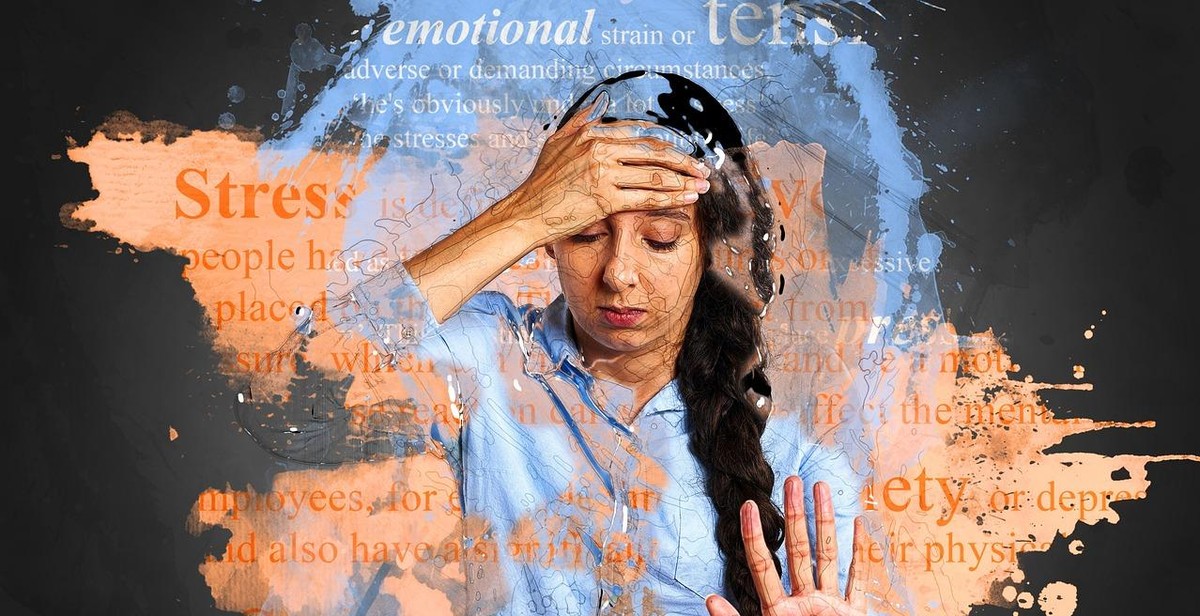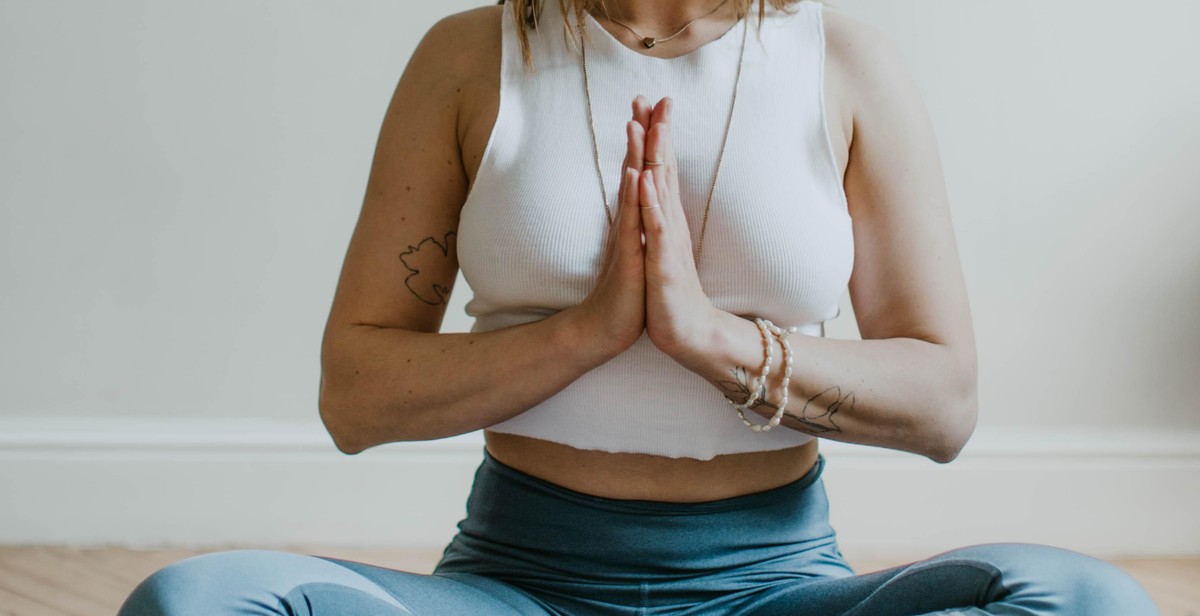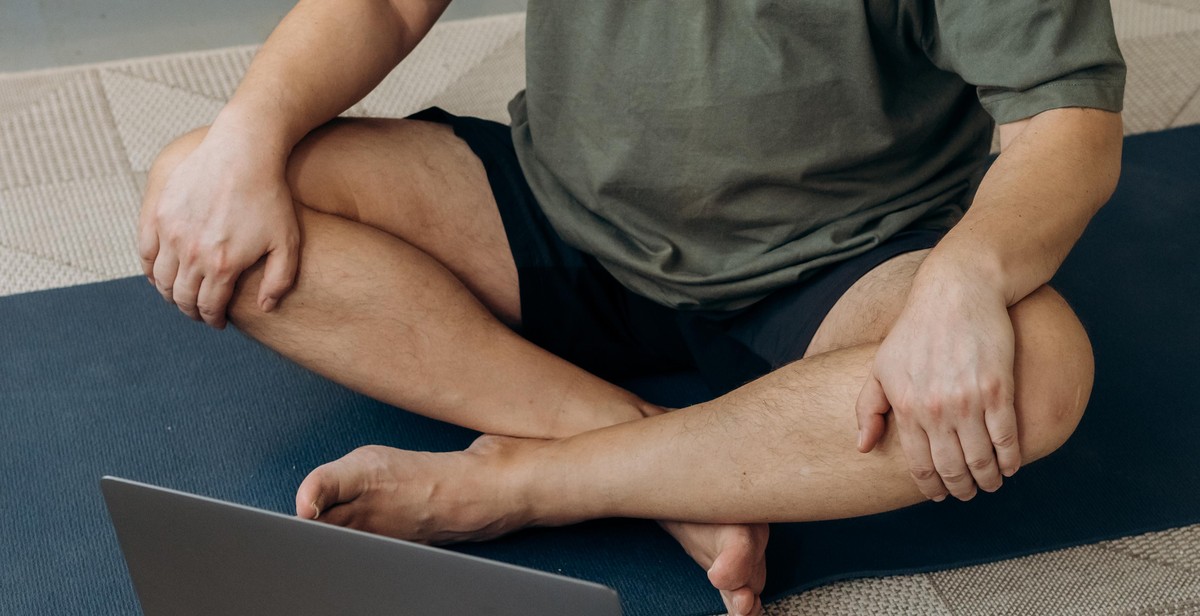Introduction
As someone who has struggled with anxiety and stress throughout my life, I have always been on the lookout for natural remedies to help alleviate these overwhelming feelings. One practice that has made a significant impact on my well-being is meditation.
In today’s fast-paced world, it’s no surprise that more and more people are searching for ways to manage their anxiety and reduce stress. Meditation, an ancient practice with roots in various cultures, has gained popularity in recent years as a powerful tool for achieving inner peace and tranquility.
In this article, we will explore how meditation can help reduce anxiety and stress, drawing from both scientific research and personal experience. We’ll delve into the mechanisms behind meditation’s effectiveness, the different types of meditation techniques available, and the potential benefits it can bring to your mental and emotional well-being.
It’s important to note that meditation is not a quick fix or a magical cure-all. It requires commitment, practice, and patience. However, the rewards of incorporating meditation into your daily routine can be transformative.
Whether you’re a beginner or have some experience with meditation, this article will provide valuable insights and practical tips to help you harness the power of meditation and find relief from anxiety and stress.

Understanding Anxiety and Stress
Anxiety and stress are two common mental health issues that many people experience in their daily lives. While they are often used interchangeably, it’s important to understand the subtle differences between the two.
What is Anxiety?
Anxiety is a natural response to stress, characterized by feelings of fear, worry, and unease. It is a normal part of life and can even be beneficial in certain situations, as it helps us stay alert and focused. However, when anxiety becomes excessive and persistent, it can interfere with our daily functioning and overall well-being.
People with anxiety disorders often experience intense and irrational fears or worries that are disproportionate to the actual threat or situation. These feelings can manifest physically, leading to symptoms such as rapid heartbeat, shortness of breath, trembling, and sweating.
Anxiety disorders come in various forms, including generalized anxiety disorder (GAD), panic disorder, social anxiety disorder, and specific phobias. If left untreated, anxiety can significantly impact a person’s quality of life and lead to other mental health issues.
What is Stress?
Stress, on the other hand, is a response to external pressures or demands. It is a normal part of life and can be experienced in various situations, such as work deadlines, financial difficulties, or relationship problems. While stress itself is not inherently harmful, chronic or overwhelming stress can have detrimental effects on both our physical and mental health.
When we encounter a stressful situation, our body releases stress hormones like cortisol and adrenaline, triggering the “fight-or-flight” response. This response prepares us to either confront the threat or flee from it. However, when stress becomes chronic, our body remains in a constant state of heightened arousal, which can lead to a range of health issues, including anxiety disorders.
Chronic stress can affect our sleep patterns, appetite, immune system, and overall well-being. It can also contribute to the development of anxiety disorders, as prolonged exposure to stress can disrupt the balance of neurotransmitters in the brain.
It’s important to note that while anxiety and stress are closely related, not everyone who experiences stress will develop an anxiety disorder. However, managing stress effectively can help prevent the onset of anxiety and other mental health issues.
In the next section, we will explore how meditation can be an effective tool in reducing anxiety and stress and promoting overall well-being.
The Benefits of Meditation
Meditation has been practiced for centuries and is known for its numerous benefits on mental, emotional, and physical well-being. When it comes to reducing anxiety and managing stress, meditation has proven to be a powerful tool. Here are some of the key benefits:
Reducing Anxiety
Anxiety can be overwhelming and debilitating, affecting various aspects of our lives. Meditation provides a natural and effective way to calm the mind and reduce anxiety symptoms. By focusing on the present moment and practicing mindfulness, meditation helps to shift our attention away from anxious thoughts and worries.
Through regular meditation practice, we can develop a greater sense of self-awareness and learn to observe our anxious thoughts without judgment. This can lead to a better understanding of the root causes of anxiety and provide us with the tools to manage it effectively.
Research has shown that meditation activates the parasympathetic nervous system, which promotes relaxation and reduces the body’s stress response. This can result in decreased heart rate, lowered blood pressure, and reduced muscle tension, all of which contribute to a calmer state of being.
Managing Stress
Stress is a common part of modern life, and if left unmanaged, it can have serious negative effects on our physical and mental health. Meditation offers a powerful antidote to stress by providing a space for relaxation, rejuvenation, and self-reflection.
Regular meditation practice helps to activate the body’s relaxation response, counteracting the harmful effects of chronic stress. By focusing on the breath or a specific object of meditation, we can train our minds to let go of stress-inducing thoughts and cultivate a state of inner peace and calm.
Meditation also enhances our ability to manage stress by improving our emotional resilience. When faced with challenging situations, we can develop the capacity to respond rather than react impulsively. This allows us to navigate stressors with greater clarity, equanimity, and adaptability.
Furthermore, meditation helps to regulate the production of stress hormones such as cortisol, reducing their impact on our bodies and minds. This can lead to improved sleep, enhanced immune function, and better overall well-being.
In conclusion, meditation is a powerful practice that can significantly reduce anxiety and manage stress. By incorporating meditation into our daily routine, we can experience a greater sense of calm, clarity, and emotional well-being.

Different Types of Meditation
When it comes to reducing anxiety and stress, meditation is a powerful tool that can provide immense benefits. There are several different types of meditation practices, each with its own unique approach and techniques. Here are three popular types of meditation that can help you find peace and tranquility:
Mindfulness Meditation
Mindfulness meditation is a practice that involves focusing your attention on the present moment. It encourages you to observe your thoughts and emotions without judgment, allowing you to cultivate a sense of acceptance and non-reactivity. This type of meditation is often done by focusing on your breath, bodily sensations, or a specific object.
Personally, I have found mindfulness meditation to be incredibly helpful in managing my anxiety. By bringing my attention to the present moment and acknowledging my thoughts without getting caught up in them, I have been able to create a sense of calm and clarity in my daily life.
Transcendental Meditation
Transcendental meditation is a technique that involves the use of a mantra—a specific word or phrase—to help focus the mind. This practice aims to transcend the surface level of thinking and access deeper levels of consciousness. It is typically practiced for 15-20 minutes, twice a day, while sitting comfortably with closed eyes.
Although I have not personally practiced transcendental meditation, many individuals have reported experiencing profound relaxation and reduced stress levels through this technique. The repetition of the mantra helps to quiet the mind and create a state of deep relaxation and inner peace.
Guided Visualization
Guided visualization is a form of meditation that involves using your imagination to create mental images or scenarios. This practice often involves listening to a pre-recorded audio that guides you through a series of visualizations, helping you to relax and focus your mind.
I have found guided visualization to be particularly helpful in reducing stress and anxiety. By immersing myself in a peaceful mental landscape or envisioning positive outcomes, I am able to shift my mindset and release tension. It allows me to tap into my creativity and imagination, ultimately promoting a sense of calm and well-being.
Each type of meditation offers its own unique benefits, and it’s important to explore different practices to find the one that resonates with you the most. Whether you choose mindfulness meditation, transcendental meditation, guided visualization, or a combination of these techniques, incorporating meditation into your daily routine can significantly reduce anxiety and stress, promoting overall mental and emotional well-being.

Getting Started with Meditation
As someone who has been practicing meditation for several years, I can attest to its incredible benefits in reducing anxiety and stress. If you’re new to meditation, it may seem overwhelming at first, but with a few simple steps, you can easily incorporate this practice into your daily routine.
Finding a Quiet Space
Creating a peaceful environment is essential for successful meditation. Find a quiet space in your home where you can escape distractions. It could be a spare room, a corner of your bedroom, or even a cozy spot in your backyard. Make sure the space is clutter-free and free from any external noises that may disrupt your practice.
Choosing a Comfortable Position
When it comes to meditation, finding a comfortable position is key. Whether you choose to sit on a cushion, a chair, or even lie down, make sure your body is relaxed and supported. Find a posture that allows you to sit upright without straining your muscles. Experiment with different positions until you find one that works best for you.
Setting a Timer
Setting a timer is crucial to ensure that you stay focused during your meditation session. Start with a shorter duration, such as 5 or 10 minutes, and gradually increase it as you become more comfortable. There are many meditation apps available that provide soothing sounds and gentle chimes to signal the end of your session.
Focusing on the Breath
One of the fundamental aspects of meditation is focusing on your breath. Take slow, deep breaths, and observe the sensation of your breath entering and leaving your body. If your mind starts to wander, gently bring your attention back to your breath. This practice of mindfulness helps to calm the mind and bring about a sense of inner peace.
Dealing with Distractions
Distractions are inevitable, especially when you’re starting out with meditation. Instead of getting frustrated or discouraged, acknowledge the distraction and let it go. Refocus your attention on your breath or any other anchor point you choose, such as a mantra or a visual object. Over time, you’ll find it easier to let go of distractions and stay present in the moment.
Remember, meditation is a practice, and it takes time and consistency to reap its full benefits. Be patient with yourself and approach your meditation sessions with an open mind. With regular practice, you’ll soon discover the transformative power of meditation in reducing anxiety and stress.

Incorporating Meditation into Daily Life
As someone who has been practicing meditation for many years, I can attest to the transformative power it has in reducing anxiety and stress. Integrating meditation into your daily routine can be a game-changer for your overall well-being. Here are three ways you can incorporate meditation into your daily life:
Morning Meditation
Starting your day with a meditation practice sets a positive tone for the rest of the day. Find a quiet and peaceful spot where you can sit comfortably. Close your eyes and take a few deep breaths to center yourself. Set an intention for your meditation, whether it’s to cultivate calmness, gratitude, or focus.
Begin by focusing on your breath, observing the sensation of each inhale and exhale. If thoughts or distractions arise, gently acknowledge them and let them go, bringing your attention back to your breath. You can also incorporate a mantra or affirmation to enhance your practice.
Even just a few minutes of morning meditation can help you start your day with a clear and calm mind, setting you up for a more peaceful and productive day ahead.
Meditation Breaks
Incorporating short meditation breaks throughout your day can be immensely beneficial in reducing stress and increasing focus. Find moments in your schedule where you can take a few minutes to pause and reconnect with yourself.
During these breaks, find a quiet space or simply close your eyes at your desk. Take a few deep breaths, allowing your body to relax and release tension. Scan your body for any areas of tightness or discomfort, and consciously let go of any physical or mental tension you may be holding.
Focus on your breath or use a guided meditation app to help you relax and refocus. These mini meditation breaks can help you recharge, clear your mind, and approach your tasks with renewed energy and clarity.
Evening Wind-Down
As the day comes to a close, it’s essential to wind down and release any accumulated stress or tension. Incorporating an evening meditation practice into your routine can help you transition from the busyness of the day to a more peaceful and restful state.
Find a comfortable position, either sitting or lying down, and take a few deep breaths to relax your body and mind. Reflect on the events of the day, acknowledging any challenges or accomplishments without judgment.
Focus on your breath and allow yourself to let go of any lingering thoughts or worries. You can also incorporate gentle stretching or body scan meditation to release any physical tension. This practice will help you cultivate a sense of calmness and prepare your mind for a restful night’s sleep.
Incorporating meditation into your daily life may require some discipline and commitment, but the benefits are truly worth it. By starting your day with morning meditation, taking meditation breaks throughout the day, and winding down in the evening, you can reduce anxiety and stress, improve focus and productivity, and nurture your overall well-being.
Combining Meditation with Other Stress-Reduction Techniques
As someone who has personally experienced the transformative power of meditation, I can attest to its effectiveness in reducing anxiety and stress. However, I have also discovered that combining meditation with other stress-reduction techniques can amplify its benefits even further. In this section, I will share my insights on how incorporating exercise, journaling, and making healthy lifestyle choices can enhance the positive effects of meditation.
Exercise
Regular physical exercise not only strengthens our bodies but also has a profound impact on our mental well-being. When combined with meditation, exercise becomes a powerful stress-relief tool. Engaging in activities such as yoga, jogging, or cycling can help us release built-up tension and clear our minds.
Personally, I find that starting my day with a short meditation session followed by a brisk walk or a workout at the gym sets a positive tone for the rest of the day. The combination of meditation and exercise helps me feel grounded, energized, and ready to tackle any challenges that come my way.
Journaling
Journaling is an excellent complement to meditation as it allows us to explore our thoughts and emotions more deeply. By putting pen to paper, we can gain better insights into the causes of our stress and anxiety. Moreover, journaling provides a safe space to express our feelings, fears, and worries without judgment or interruption.
When I combine meditation with journaling, I find that it helps me identify patterns in my thinking and behavior that contribute to stress. By gaining this awareness, I can then work on developing healthier coping mechanisms and finding solutions to the root causes of my stressors.
Healthy Lifestyle Choices
Living a healthy lifestyle is crucial for managing stress effectively. When we prioritize our physical well-being by eating nutritious food, getting enough sleep, and avoiding harmful substances, we create a solid foundation for our mental and emotional health.
When meditation is combined with healthy lifestyle choices, the benefits are profound. I have noticed that when I nourish my body with wholesome foods, get sufficient rest, and avoid excessive caffeine or alcohol, my meditation practice becomes more focused and effective. This, in turn, helps me better cope with the daily stressors that come my way.
By integrating exercise, journaling, and healthy lifestyle choices with meditation, we can create a holistic approach to stress reduction. Each of these techniques enhances our ability to manage anxiety and stress, allowing us to lead more balanced and fulfilling lives.

Seeking Professional Help
If you have been struggling with anxiety and stress for a while, it may be beneficial to seek professional help. While meditation can be a powerful tool in managing these symptoms, sometimes additional support is necessary to address the root causes and develop a comprehensive treatment plan. Here are a few options to consider:
Therapy
Working with a qualified therapist can provide you with the guidance and support needed to navigate your anxiety and stress. Therapists can help you identify triggers, explore underlying issues, and develop coping strategies. Cognitive-behavioral therapy (CBT) and mindfulness-based stress reduction (MBSR) are two common therapeutic approaches that have shown great success in managing anxiety and stress.
Psychiatry
If your anxiety and stress are severe and significantly impacting your daily life, consulting a psychiatrist may be beneficial. Psychiatrists are medical doctors who specialize in mental health and can prescribe medication if necessary. They can conduct a thorough evaluation, diagnose any underlying conditions, and recommend appropriate treatment options.
Support Groups
Joining a support group can provide you with a sense of community and understanding. Interacting with others who are going through similar experiences can be comforting and empowering. Support groups offer a safe space for sharing, learning coping strategies, and receiving encouragement from others who truly understand what you’re going through.
Online Resources
In addition to seeking professional help, there are numerous online resources available that can supplement your meditation practice. Websites, apps, and online courses offer guided meditations, breathing exercises, and educational materials to help you better understand and manage your anxiety and stress. Just be sure to choose reputable sources and consult with professionals if needed.
Remember, seeking professional help doesn’t mean that meditation is ineffective. Rather, it complements your meditation practice by providing additional tools and support. It’s important to find the approach that works best for you and to be open to exploring different modalities until you find the right fit.
Ultimately, the goal is to create a holistic approach to managing anxiety and stress, combining meditation with professional guidance to achieve long-lasting relief and improved well-being.
Conclusion
After years of personal experience and extensive research, I can confidently say that meditation is an incredibly effective tool for reducing anxiety and stress. Its benefits extend far beyond relaxation, as it can improve mental and physical well-being, enhance self-awareness, and promote a positive mindset.
Through regular meditation practice, I have witnessed significant improvements in my own anxiety levels and stress management. The simple act of sitting in stillness and focusing on my breath has allowed me to cultivate a sense of calm and inner peace. It has become my go-to practice during challenging times, helping me regain control over my thoughts and emotions.
Scientific studies have also supported the positive impact of meditation on anxiety and stress reduction. The practice has been shown to lower cortisol levels, the hormone responsible for stress, and activate the parasympathetic nervous system, which induces relaxation and counteracts the body’s stress response.
Furthermore, meditation provides a valuable opportunity for introspection and self-reflection. It allows us to observe our thoughts without judgment and develop a deeper understanding of our inner workings. This self-awareness empowers us to recognize and challenge negative thought patterns and cultivate a more positive and resilient mindset.
Whether you are a beginner or an experienced practitioner, incorporating meditation into your daily routine can significantly alleviate anxiety and stress. Start with just a few minutes a day and gradually increase the duration as you become more comfortable. Remember, consistency is key.
Embrace the transformative power of meditation and embark on a journey towards a calmer, more balanced life. Your mind and body will thank you.
